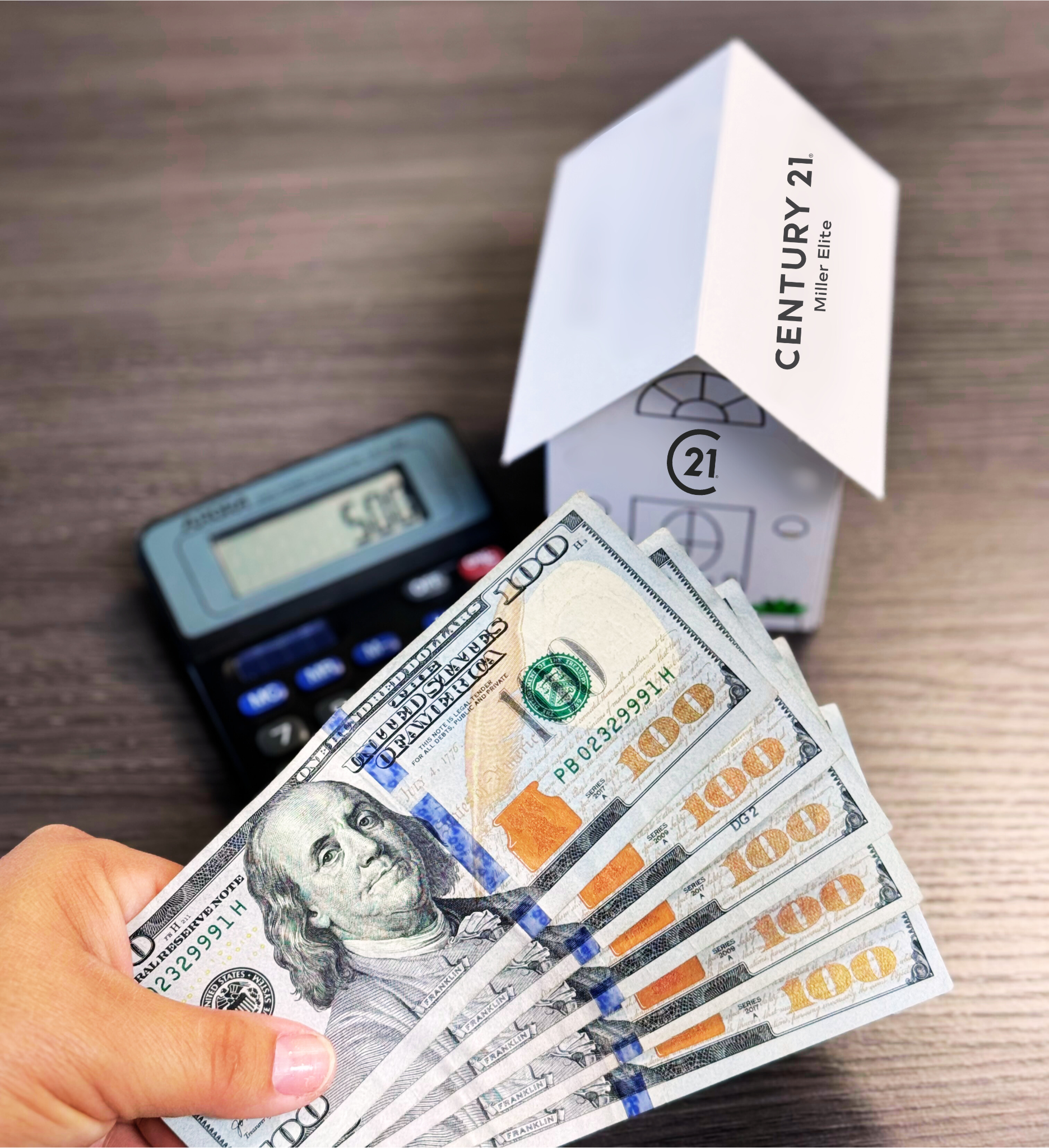Social Links Widget
Click here to edit the Social Media Links settings. This text will not be visible on the front end.
Demystifying Closing Costs: What Every Homebuyer Should Know

Buying a home is an exciting journey, but it can also be accompanied by a whirlwind of unfamiliar terms and expenses. One of the most significant financial aspects of purchasing a home is dealing with closing costs. At CENTURY 21 Miller Elite, we understand that navigating these costs can be confusing, which is why we’re here to demystify the process and ensure you’re well-prepared for this crucial step in your homeownership journey.
What are Closing Costs?
Closing costs are the fees and expenses associated with finalizing a real estate transaction. These costs are paid at the closing of the sale and cover various services and expenses required to complete the home purchase. While the specifics of closing costs can vary depending on location, lender, and the intricacies of the transaction, there are common elements you can expect to encounter.
Common Components of Closing Costs:
- Lender Fees: These are fees charged by the lender for processing your mortgage application. They may include loan origination fees, appraisal fees, credit report fees, and underwriting fees.
- Title Fees: Title fees include the cost of a title search to verify the seller’s legal right to sell the property, title insurance to protect against any legal disputes over ownership, and any associated attorney fees.
- Taxes and Insurance: Based on the timing of your purchase, you will pay prorated property taxes, homeowners insurance premiums, and prepaid interest at closing.
- Government Fees: These fees include recording fees to legally record the sale with the appropriate government agency and any applicable transfer taxes.
- Home Inspection and Survey Fees: While often paid upfront and not at the time of closing, home inspection and survey fees may be required depending on the terms of the purchase agreement.
- Prepaid Expenses: This includes prepaid interest, homeowners insurance premiums, and property taxes to initially fund your escrow account for your loan.
Understanding Your Closing Costs:
It’s essential to review your Loan Estimate and Closing Disclosure documents carefully to understand the breakdown of your closing costs. Your lender is required to provide these documents, which outline the estimated and final costs associated with your mortgage. Take the time to ask questions and ensure you understand each fee and expense listed.
Tips for Managing Closing Costs:
- Shop Around: Don’t hesitate to shop around for lenders and service providers. Comparing offers can help you find the best rates and potentially lower your closing costs.
- Negotiate with the Seller: In some cases, you may be able to negotiate with the seller to cover some or all of the closing costs as part of the purchase agreement.
- Consider Seller Concessions: Seller concessions involve the seller contributing to your closing costs, either through a credit or by agreeing to a higher purchase price to cover these expenses.
- Plan Ahead: Factor closing costs into your budget early in the homebuying process. Knowing what to expect can help you avoid any last-minute financial surprises.
Closing costs are an inevitable part of the home buying process, but with the right knowledge and preparation, you can navigate them with confidence. At CENTURY 21 Miller Elite, we’re here to guide you through every step of your home buying journey and ensure you have a smooth and successful closing experience. If you have any questions or need assistance, don’t hesitate to reach out to our team of experienced professionals. Happy house hunting!
Understanding the Escrow Process: A Step-by-Step Guide for Homebuyers

Welcome to CENTURY 21 Miller Elite, your trusted partner in real estate transactions in sunny Florida! Today, we’re diving into an essential aspect of home buying: the escrow process. While it may seem complex at first glance, understanding how escrow works can provide clarity and confidence as you navigate your journey to homeownership. So, let’s break it down together, step by step.
Step 1: Opening Escrow
Once you’ve found your dream home and made an offer that’s been accepted by the seller, it’s time to open escrow. At CENTURY 21 Miller Elite, we offer the option of securely holding your escrow funds in our trusted escrow account, providing you with convenience and peace of mind throughout the transaction. Alternatively, you may choose to use a third-party escrow service, such as an attorney or title company. Regardless of your choice, depositing your earnest money into escrow is a sign of good faith and demonstrates your commitment to the transaction.
Step 2: Escrow Instructions
Next, both you and the seller will receive escrow instructions outlining the terms and conditions of the transaction. These instructions include important details such as the purchase price, timeline for contingencies, and any specific conditions agreed upon by both parties. Review these instructions carefully with your real estate agent to ensure everything aligns with your expectations.
Step 3: Title Search and Insurance
While in escrow, the title company will conduct a thorough title search to uncover any liens, encumbrances, or other issues that could affect the property’s ownership. Once the title is deemed clear, you’ll have the option to purchase title insurance, which provides protection against any unforeseen claims or defects in the title.
Step 4: Contingency Periods
During contingency periods, you’ll have the opportunity to perform inspections, secure financing, and address any other conditions outlined in the purchase agreement. If any issues arise during this time, you can work with your real estate agent to negotiate repairs or credits with the seller.
Step 5: Loan Approval
If you’re obtaining financing, your lender will begin the underwriting process to assess your creditworthiness and the property’s value. Be sure to promptly provide any requested documentation to keep the process moving smoothly.
Step 6: Closing Disclosure
As the closing date approaches, you’ll receive a Closing Disclosure from your lender outlining the final terms of your loan, including the loan amount, interest rate, and closing costs. Review this document carefully and address any questions or concerns with your lender before proceeding to closing.
Step 7: Final Walk-Through
Prior to closing, you’ll have the opportunity to conduct a final walk-through of the property to ensure it’s in the agreed-upon condition. This is your last chance to identify any issues before taking ownership, so be thorough in your inspection.
Step 8: Closing
Finally, it’s time to sign the necessary paperwork and officially close the deal! During the closing meeting, you’ll sign the mortgage documents, pay any remaining closing costs, and receive the keys to your new home. Congratulations, you’re officially a homeowner!
We understand that the escrow process can seem daunting, especially for first-time homebuyers. That’s why we’re here to guide you every step of the way, providing expert advice and personalized support to ensure a seamless transaction from start to finish. If you have any questions or are ready to begin your home buying journey, don’t hesitate to reach out to our team. Happy house hunting!


 Facebook
Facebook
 X
X
 Pinterest
Pinterest
 Copy Link
Copy Link

